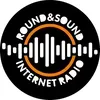70 Live Radio Stations
Radio Stations
- 70 80 90 ITALIA D'AUTORE

- 70 80 Hits HQ

- Disco Net

- Éxtasis Digital (Ciudad de México) - Online - Radiorama - Ciudad de México

- Éxtasis Digital (Cuernavaca) - 107.7 FM - XHASM-FM - Radiorama - Cuernavaca, MO

- Éxtasis Digital (Guadalajara) - 105.9 FM - XHQJ-FM - Radiorama - Guadalajara, JC

- Éxtasis Digital (Guadalajara) - 105.9 FM - XHQJ-FM - Radiorama - Guadalajara, JCÉxtasis Digital (Guadalajara) - 105.9 FM - XHQJ-FM...
- Éxtasis Digital (León) - 95.9 FM - XHGTO-FM - Radiorama - León, GT

- Éxtasis Digital (Parral) - 94.9 FM - XHSB-FM - Radiorama - Parral, ChihuahuaÉxtasis Digital (Parral) - 94.9 FM - XHSB-FM - Rad...
- Éxtasis Digital (Piedras Negras) - 105.5 FM - XHRE-FM - RCG Media / Radiorama - Piedras Negras, CO

- Éxtasis Digital (Poza Rica) - 105.9 FM - XHCOV-FM - Radiorama / Radio Resultados - Poza Rica, VE

- Éxtasis Digital (Tuxtla) - 103.5 FM - XHTUG-FM - Grupo Radio Comunicación - Tuxtla Gutiérrez, CS

- LM Radio

- Musical Stereo JFB

- NBC Milano

- Ouï FM Rock 70'

- P9 Retro

- Radio Disco-DanceRadio Disco-Dance
- Radio Saba Sound

- Radio TamaraRadio Tamara
- Round && Sound

- SENSUELLE RADIO

Choose a Genre
The 70s: A Musical Revolution on the Airwaves
The 1970s was a decade of dramatic change in the world of music, and radio stations of the era played a crucial role in shaping and reflecting these shifts. As cultural landscapes around the world evolved, so did the sounds of popular music, leading to the emergence of groundbreaking new genres. From the rhythmic pulse of disco to the raw edge of punk rock, the music of the '70s not only defined a generation but also influenced the music we listen to today.
One of the defining trends of the 1970s was the meteoric rise of disco. Emerging from the underground dance clubs, disco quickly became the heartbeat of popular music in the late '70s. The genre’s signature sound—a pulsating rhythm, catchy melodies, and deep basslines—was designed for the dance floor, and it ignited a cultural movement. Hits like "Stayin' Alive" by the Bee Gees, "Le Freak" by Chic, and "I Will Survive" by Gloria Gaynor became anthems of the era, played incessantly on radio stations across the globe. Disco wasn’t just a genre; it was a lifestyle that permeated fashion, film, and social culture, making it a defining feature of the decade.
Alongside disco, funk also emerged as a major genre in the '70s. Funk music was defined by its deep grooves, rhythmic basslines, and infectious drum patterns, with the rhythm section at the core of its sound. Funk was all about the beat—it was music meant to make people move. Legendary artists such as James Brown, Sly and the Family Stone, and Parliament-Funkadelic set the stage for the genre’s explosion. Funk’s influence stretched far beyond the '70s, laying the foundation for future genres like hip hop and electronic dance music.
The '70s also witnessed the evolution of rock music, though the genre took a more experimental turn. The classic rock of the 1960s gave way to more complex and diverse sounds. Progressive rock bands like Pink Floyd, Yes, and Genesis became immensely popular, offering music that was both musically intricate and intellectually stimulating. This era also saw the fusion of rock with other genres—soft rock artists like Fleetwood Mac and the Eagles brought a smoother, more accessible sound to the airwaves, while hard rock bands such as Led Zeppelin and AC/DC introduced heavier, louder music that defined stadium concerts.
Meanwhile, a new, more rebellious sound took over with the advent of punk rock. Reacting against the polished commercialism of mainstream music, punk was loud, raw, and often confrontational. It embraced a DIY ethos that saw bands like the Sex Pistols, The Clash, and the Ramones challenging the very conventions of music and culture. Punk was more than just music; it was a declaration of independence and a rejection of the status quo. Radio stations, while initially resistant, began to play punk as its popularity grew, marking a pivotal shift in music culture.
Beyond these groundbreaking genres, the 1970s was also a time of continued popularity for other styles such as soft rock, country, and soul. Soft rock artists like Carole King and Elton John delivered emotional ballads and timeless classics, while country music remained a staple with legends like Dolly Parton and Kenny Rogers. Soul music, rooted in rhythm and blues, continued its dominance through artists like Stevie Wonder, Marvin Gaye, and Earth, Wind & Fire, whose tracks echoed through radios everywhere, offering both uplifting beats and deep social commentary.
The 1970s music scene was truly one of the most diverse in history. Radio stations during this era catered to every possible taste, playing everything from the slick, danceable beats of disco to the gritty, fast-paced power of punk. Whether you were in the mood for the smooth crooning of soft rock or the electrifying energy of funk, there was a radio station that had you covered.
For many, the 1970s represents a time when radio was at its most influential. Stations didn’t just play music—they were cultural touchstones, shaping not only the sound of the era but also the attitudes and values of a generation. As the decade drew to a close, the variety of genres and sounds that had defined the '70s set the stage for the music that would follow in the 1980s and beyond, ensuring that the legacy of this transformative period would continue to influence the airwaves for years to come.
In summary, the music of the 1970s was as varied as it was revolutionary. Radio stations of the era reflected the exciting changes happening in the musical world, offering a platform for genres that would go on to shape the future of popular music. Whether you were a fan of disco, funk, rock, punk, or soul, the 1970s was a time when radio brought it all to life, and the sounds of that decade still resonate with us today.
The 1970s was a decade of dramatic change in the world of music, and radio stations of the era played a crucial role in shaping and reflecting these shifts. As cultural landscapes around the world evolved, so did the sounds of popular music, leading to the emergence of groundbreaking new genres. From the rhythmic pulse of disco to the raw edge of punk rock, the music of the '70s not only defined a generation but also influenced the music we listen to today.
One of the defining trends of the 1970s was the meteoric rise of disco. Emerging from the underground dance clubs, disco quickly became the heartbeat of popular music in the late '70s. The genre’s signature sound—a pulsating rhythm, catchy melodies, and deep basslines—was designed for the dance floor, and it ignited a cultural movement. Hits like "Stayin' Alive" by the Bee Gees, "Le Freak" by Chic, and "I Will Survive" by Gloria Gaynor became anthems of the era, played incessantly on radio stations across the globe. Disco wasn’t just a genre; it was a lifestyle that permeated fashion, film, and social culture, making it a defining feature of the decade.
Alongside disco, funk also emerged as a major genre in the '70s. Funk music was defined by its deep grooves, rhythmic basslines, and infectious drum patterns, with the rhythm section at the core of its sound. Funk was all about the beat—it was music meant to make people move. Legendary artists such as James Brown, Sly and the Family Stone, and Parliament-Funkadelic set the stage for the genre’s explosion. Funk’s influence stretched far beyond the '70s, laying the foundation for future genres like hip hop and electronic dance music.
The '70s also witnessed the evolution of rock music, though the genre took a more experimental turn. The classic rock of the 1960s gave way to more complex and diverse sounds. Progressive rock bands like Pink Floyd, Yes, and Genesis became immensely popular, offering music that was both musically intricate and intellectually stimulating. This era also saw the fusion of rock with other genres—soft rock artists like Fleetwood Mac and the Eagles brought a smoother, more accessible sound to the airwaves, while hard rock bands such as Led Zeppelin and AC/DC introduced heavier, louder music that defined stadium concerts.
Meanwhile, a new, more rebellious sound took over with the advent of punk rock. Reacting against the polished commercialism of mainstream music, punk was loud, raw, and often confrontational. It embraced a DIY ethos that saw bands like the Sex Pistols, The Clash, and the Ramones challenging the very conventions of music and culture. Punk was more than just music; it was a declaration of independence and a rejection of the status quo. Radio stations, while initially resistant, began to play punk as its popularity grew, marking a pivotal shift in music culture.
Beyond these groundbreaking genres, the 1970s was also a time of continued popularity for other styles such as soft rock, country, and soul. Soft rock artists like Carole King and Elton John delivered emotional ballads and timeless classics, while country music remained a staple with legends like Dolly Parton and Kenny Rogers. Soul music, rooted in rhythm and blues, continued its dominance through artists like Stevie Wonder, Marvin Gaye, and Earth, Wind & Fire, whose tracks echoed through radios everywhere, offering both uplifting beats and deep social commentary.
The 1970s music scene was truly one of the most diverse in history. Radio stations during this era catered to every possible taste, playing everything from the slick, danceable beats of disco to the gritty, fast-paced power of punk. Whether you were in the mood for the smooth crooning of soft rock or the electrifying energy of funk, there was a radio station that had you covered.
For many, the 1970s represents a time when radio was at its most influential. Stations didn’t just play music—they were cultural touchstones, shaping not only the sound of the era but also the attitudes and values of a generation. As the decade drew to a close, the variety of genres and sounds that had defined the '70s set the stage for the music that would follow in the 1980s and beyond, ensuring that the legacy of this transformative period would continue to influence the airwaves for years to come.
In summary, the music of the 1970s was as varied as it was revolutionary. Radio stations of the era reflected the exciting changes happening in the musical world, offering a platform for genres that would go on to shape the future of popular music. Whether you were a fan of disco, funk, rock, punk, or soul, the 1970s was a time when radio brought it all to life, and the sounds of that decade still resonate with us today.